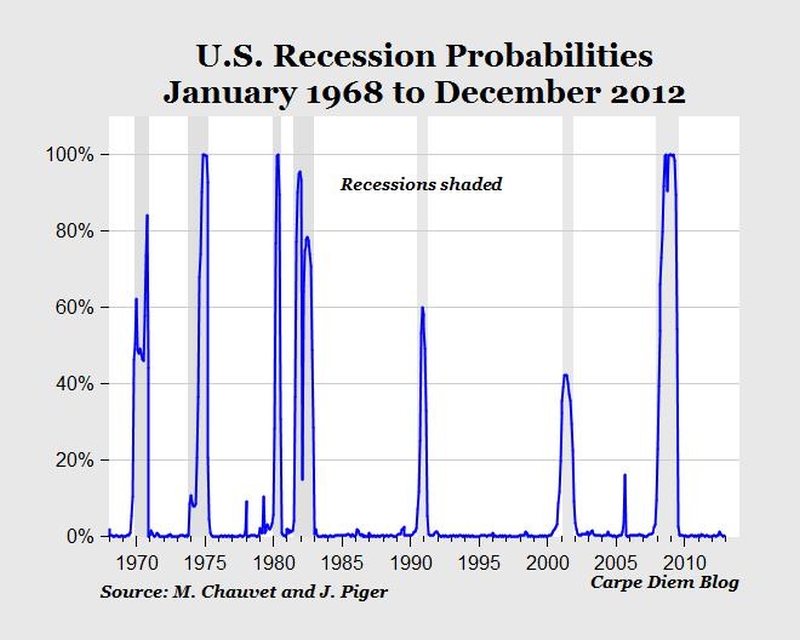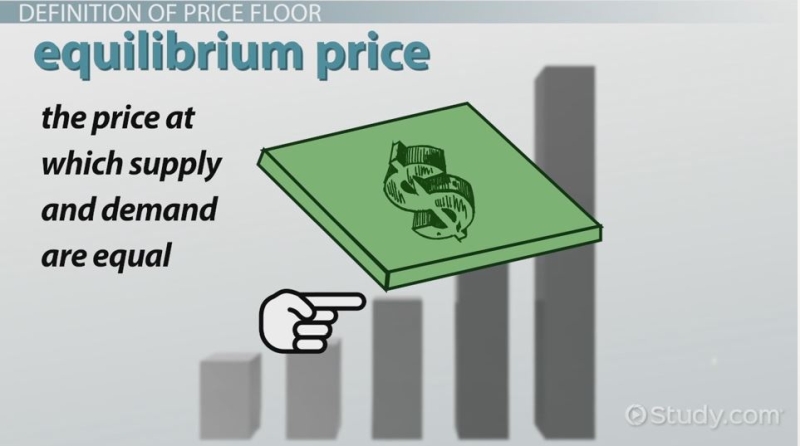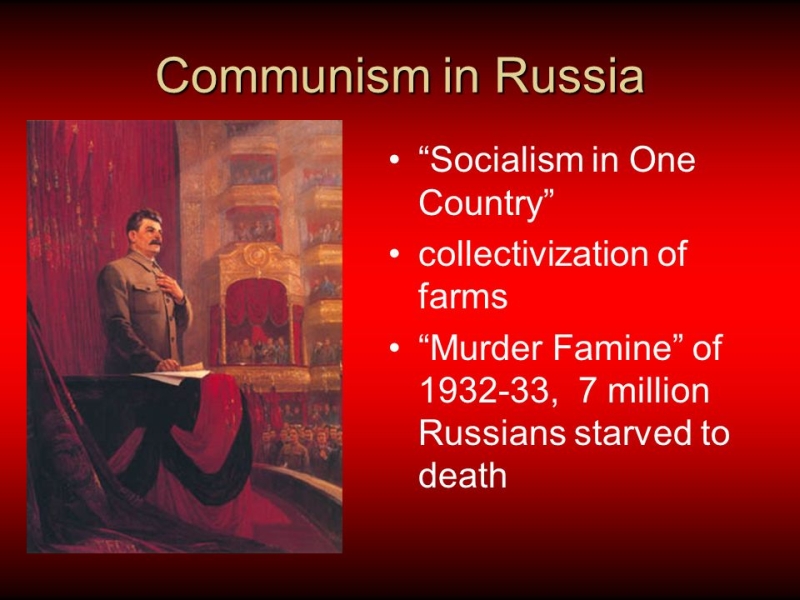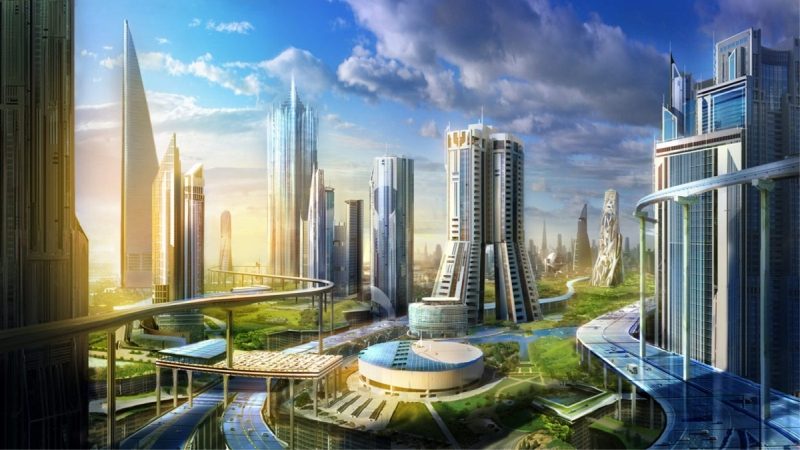It is probable that a classical economic system from the roots of Adam Smith, John Stuart Mill, and others, is the most efficient and effective economic system ever devised – when left alone. However, even capitalism could never become a utopia.
Today, the capitalism that resulted from Classical Economics hardly exists at all anymore. With the introduction of the fallacious Keynesian economics which influenced the government to get involved in the economy through manipulation with bailouts, minimum wage laws, and other catastrophic economic manipulations, capitalism has become a shadow of its former self.
Today’s economic system widely resembles socialism, and is no longer a purely capitalistic society or economy. As a result, the vast problems with today’s systems are not a result of capitalism, but of its socialist economic influences.
The natural cycles of the economy
This said, even though capitalism is likely the best economic system in existence, and perhaps that could ever be invented; a purely capitalistic society is also not a utopia. While free from the massive issues that plague any socialist economy, capitalism by nature is a cycle of ups and downs – economists call these ups and downs “peaks” and “valleys”, and “recessions” and “recoveries”.

While to the common citizen economic recessions may seem like unusual events, the reality is that even under the best economic circumstances, recessions are a regular and natural function of a healthy economy. Once about every ten years there is a recessions, or one inevitably pending.
This has been true for as long as we have been closely measuring global economics (more than a century), and most likely has been true throughout all of human history, setting aside unusual events (such as the Black Death aka Bubonic Plague, which altered the normal economic fluctuations for a time due to the widespread severity).
A quest to “correct” these natural economic cycles to attain what economists call an “equilibrium” (which I believe does not exist), has always been inevitably in vain. In fact, attaining an economic equilibrium was the premise for the very founding of Keynesian economics in the early 1900s; yet a century of Keynesian economics has proved it to be a catastrophic failure.
There is a reason why it is not possible to “correct” economic recessions to prevent any recessions from occurring. I believe that the root of the very reason for recessions from a Christian point of view suggests that it is truly impossible for humans to ever prevent recessions on a permanent basis.
A Christian theory regarding economic recessions and the impossibility of economic equilibrium or socialist “utopia”

My theory as to why regular economic recessions are such an absolute part of the economy that it is considered a “normal part of a healthy functioning economy”, reaches back to the very first two humans.
When Adam and Eve were in the garden and they introduced sin into God’s perfect creation through eating the forbidden fruit, God cursed both man and woman. Man’s specific curse was that he will always have to work the ground. Later in the Bible it is continually referenced that people who do not work will fall to poverty and die.
Proverbs 21:25 says, “The desire of the slothful kills him; for his hands refuse to labor.” and Proverbs 10:4 says, “Lazy hands make for poverty, but diligent hands bring wealth.” In the New Testament Paul also said 2 Thessalonians 3:10, “The one who is unwilling to work shall not eat”, reiterating scripture from the Old Testament.
These verses appear to be rooted in the original curse of man, “Cursed is the ground because of you; In toil you will eat of it All the days of your life” (Genesis 3:17), and “By the sweat of your face You will eat bread, Till you return to the ground” (Genesis 3:19).
I believe that the natural cycles of economic peaks are recessions are a natural byproduct of the curse of humanity. During a peak, people have worked hard. However, after everyone is in plenty, people tend to become more lazy. Upon working less and working less hard, people as a whole are brought under the curse, and all of society heads toward a recession.
During a recession, people are renewed with a new vigor to work hard again. Upon working hard again, the people as a whole are blessed, and the economy improves and enters a peak. Likewise, once reaching a time of plenty again, people have forgotten the hardships of the previous decade, and slack off. Upon doing so, the curse is reactivated and the economy dwindles until reaching a recession, restarting the cycle once more.
The failures and impossibility of the socialist utopia
Similarly, the total and unprecedented devastating failures of every socialist economic attempt is very possibly also the result of the curse of humanity for the first sin. In principle, socialism would be the perfect economic system that could lead to a true utopia. However, in practice, we know this is never the case. Christian economists would probably chalk this up to the sinfulness of humanity and the problems resulting from greed and sin that results in the higher echelons of the socialist caste – the few in power who control all of society and the economy; a power structure which is the inevitable result of socialism.

However, while I certainly agree that corruption due to greed and unbalanced power is instrumental in the inevitable devastating failure of any attempt at a socialist utopia, I also believe that there is a very distinct possibility that the root of the failings of socialism is the curse of humanity given by God as a result of sin.
If this is true, then it means that humanity can never achieve utopia. The presence of sin of course is a factor in derailing any attempt at utopia; but the root of this may be the curse of humanity for sinning.
Of course, as Christians we know for a fact that utopia will never be achieved. Anyone who has read or even heard of the book of Revelation can recognize that the world will continue to decline morally until ultimately (skipping the details) God destroys the world and rebuilds a new one. If a true utopia would ever exist on Earth, there would be no reason for God to destroy the world. Therefore, utopia will never exist until after God destroys the world and rebuilds the new heaven and new Earth.
Analysis of failures to mitigate recessions
We know as Christians that any attempt at utopia is a futile endeavor, since it will inevitably fail, since there will be no utopia while this world still exists. However, as to the less ambitious attempts to eliminate economic recessions, I assert this too is a futile endeavor, because if the existence of recessions is a result of the curse of humanity combined with humanity’s tendency to slack off when the economy improves, then it means that directly manipulating the economy to attempt to eliminate recessions will always fail.
If that is the case that attempting to directly eliminate a recession is futile, then the reason why is because you would be dealing with the symptom, not the cause. If recessions are ultimately a result of the curse of humanity along with humanity’s laziness, then the only way to truly cause recessions to cease or at least improve is to directly influence individual people to stop being lazy during the good times.
Similarly, the reason why the social welfare system is such a catastrophic failure, is because providing people with free things causes them to become lazy and not work and become dependent on the system. This particular fact is not some theory but is scientifically proven through decades of the failed social welfare experiment. It has been absolutely proven that social welfare directly causes people to become dependent and to stop even trying to work.
As a result of people becoming lazy and not working, ultimately due to humanity’s curse, events would occur that cause a global decrease in the quality of life, increased poverty, and an increase in global hunger and starvation. A logical way this may occur is by the decreases of social and economic utility of a nation (or even the world) and have the nation or world enter a period of relative recession.
This is exactly what we are experiencing today. America is being overrun by lazy people dependent on socialist welfare, and the entire well-being of the nation’s economy is being directly affected by this. Likewise, other first-world nations who have adopted a similar socialist welfare system are experiencing similar issues, namely western Europe. As a result of this, the quality of life has decreased for nearly the entire world, and the global economy is suffering on the brink of collapse.
Potential applications to the real world

It is possible that these principles can be directly applied to society in order to help to counteract the effects of recession. If it really is true that all our economic problems are simply a result of failure to work (or failure to work hard, and as a whole), then by implementing a purely capitalistic society, and instead of using Keynesian means like government bailouts, taxation, and wage-fixing, we instead simply influenced everyone to work and to work hard, then the entire world can escape global economic disaster.
Will this happen however? I would venture to say it is unlikely at the current rate, because the entire world is straying away from God and into an atheistic mindset. Most of the world leaders are godless hypocrites, some even tyrants; and far from benevolent. Still, there is hope that we could have a global revival that could bring people back to God. Once the world becomes more godly, then perhaps the world leaders and economic leaders can begin to implement new ways to try to counteract recessionary periods by simply influencing people to have a strong work ethic as a vital part of the national culture. In influencing people to work hard and not to become lazy, the economy will flourish and be saved from the destruction that lies ahead if things continue as they are.
Lastly, even if implementation of this never occurs on the government level, each individual can take this information to heart and recognize that the power of success and failure, economic wellbeing and economic disaster (on a personal scale), being poor or being well-off, or any other iteration of this, is all in your own hands. You can decide whether you will live in poverty or live in plenty, because according to the Bible, if you work hard (and trust God), you will not be in need; but if you are lazy and fail to work, you will come to ruin.
It doesn’t matter what the global economy is like. It doesn’t matter if we are in an economic recession, economic recovery, or total global economic catastrophe. If you work hard and never stop working hard, and you trust God for all your needs, then you can be assured that God will take care of everything that you need, and you will never come to ruin.



